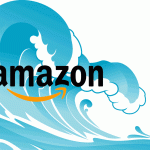Why The Amazon-Chase-Berkshire Trifecta Is Healthcare Fanfic In The Making
On Tuesday, e-commerce giant Amazon, banking institution JPMorgan Chase, and the many-tentacled investment firm Berkshire Hathaway announced a tie-up aimed at disrupting the healthcare industry. The three companies offered scant details on the initiative, but said they’re developing technological solutions to bring their employees “high-quality and transparent healthcare” at an affordable price.
What the press release didn’t mention, says Oliver Wyman healthcare expert Sam Glick, was working with ingrained players. “It’s much more consumer oriented and much less partner-with-the-good-parts-of-the-system-oriented than I think any other announcement we’ve seen,” he says.
Related Video: Why The Healthcare Industry Is Nervous Over The Amazon-Chase-Berkshire Project
Other large employers have tried to make healthcare plans more efficient in the past. Boeing, for example, contracts directly with the health system in California rather than going through an insurer. Walmart and Lowes joined a network of private companies inside of the Pacific Health Group to create the Employers Centers of Excellence Network, a network of health providers with which they have negotiated lowers costs for expensive procedures like knee replacements for employees.
How today’s announcement may ultimately compare with those examples remains to be seen, but Glick says the presentation is different, “even in the initial language.”
It’s easy to talk up this deal, he adds, because the combined resources of these three giant entities conjure imaginings of grandeur: Imagine Alexa offering triage care at home, while Amazon-owned Whole Foods handles primary care at its in-store clinics—where customers will also be able to get nutritional support and customized meal plans. (It might even remind you to exercise regularly.) Amazon marketplace will, of course, process and fulfill drug prescriptions. Meanwhile, JPMorgan will cover payments infrastructure—meaning an insurance card that doubles as a debit card—and Berkshire Hathaway will bring about the insurance of the future.
Long-Sought Ambitions
While the program announced today is for employees only, Amazon has long had healthcare ambitions for its marketplace. It’s even made some investments in the space, including around primary care, according to CNBC.
What helps support this extravagant vision is that the trio of companies have decided to make this new initiative an independent entity. “The conventional advice is if you really want to move fast, if you want to do something different, don’t keep it within the current org structure,” says Glick. “Give it independent governance, give it independent capital, and let it move fast, let it do something disruptive.”
Giving this new company space to manage a budget all its own, and make the necessary investments to in order to facilitate new healthcare products, will certainly be a boon, but Amazon, JPMorgan, and Berkshire Hathaway still have major barriers to building a healthcare alternative. Even with combined workforces, they only service 1.2 million employees, which means they will have very little negotiating power on price.
That is, unless they develop some new technology, utilizing their vast troves of consumer data or, as Glick points out, “use their ability to shape behavior change so they’re reducing the utilization of things where the cost is very expensive.”
Essentially this future insurance company will have to experiment with enticing people to adopt a more healthy lifestyle, or perhaps direct them to a more cost-effective care facility at the right moment, reducing the need for expensive treatments. Of course, the group could decide to cuts costs in other ways, through running their own primary care treatment centers.
Amazon may also get into prescription fulfillment and realize savings there. But here, too, Amazon may be challenged: In the past, the company has had a difficult time acquiring pharmaceutical licenses, Marketplace reported in December.
Today’s announcement was especially thin on specifics, so it’s hard to say what exactly will come from the new arrangement. But investors seem to think the potential is there. Healthcare stocks sunk beneath the wake of the press release. No surprise there, says Glick. “If I’m a health plan, this should be a massive wakeup call,” he says. “They feel they have to build their own? That’s a problem.”
Fast Company , Read Full Story
(13)














